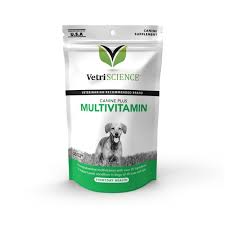The Importance of Dog Vitamins and Supplements
Dogs, just like humans, require essential vitamins and nutrients to maintain optimal health and well-being. While a balanced diet is crucial for meeting most of a dog’s nutritional needs, there are instances where supplementation with vitamins and supplements can be beneficial.
Why Consider Dog Vitamins and Supplements?
**Nutritional Gaps:** Even the best commercial dog foods may not provide all the necessary vitamins and minerals in the right quantities. Supplements can help fill these gaps to ensure your dog receives complete nutrition.
**Specific Health Conditions:** Dogs with certain health conditions or dietary restrictions may benefit from targeted supplements to support their overall health. For example, joint supplements can help older dogs with arthritis or hip dysplasia.
Popular Dog Vitamins and Supplements
**Omega-3 Fatty Acids:** These essential fatty acids are beneficial for a dog’s skin, coat, joint health, and cognitive function.
**Probiotics:** Probiotic supplements can promote good gut health by supporting the balance of beneficial bacteria in the digestive system.
**Multivitamins:** These comprehensive supplements contain a blend of essential vitamins and minerals to support overall health and immunity.
Consult Your Veterinarian
3
Before introducing any new vitamins or supplements into your dog’s diet, it is crucial to consult with your veterinarian. They can provide guidance on the specific needs of your dog based on factors like age, breed, size, and existing health conditions.
In conclusion, while dog vitamins and supplements can be beneficial in certain situations, they should not replace a balanced diet. When used appropriately under veterinary supervision, these supplements can help support your dog’s overall health and quality of life.
Top 7 FAQs About Dog Vitamins and Supplements: Benefits, Risks, and Expert Advice
- 1. What are the benefits of giving my dog vitamins and supplements?
- 2. How do I know if my dog needs vitamins or supplements?
- 3. Are there any risks associated with giving my dog vitamins and supplements?
- 4. What are some common types of vitamins and supplements for dogs?
- 5. Can I give human vitamins to my dog as a substitute?
- 6. How should I introduce vitamins and supplements into my dog’s diet?
- 7. Is it necessary to consult a veterinarian before giving my dog vitamins or supplements?
1. What are the benefits of giving my dog vitamins and supplements?
Giving your dog vitamins and supplements can offer several benefits to support their overall health and well-being. These supplements can help fill any nutritional gaps that may exist in your dog’s diet, ensuring they receive all the essential vitamins and minerals necessary for optimal functioning. Additionally, specific supplements tailored to your dog’s needs, such as joint support or skin health, can address particular health concerns and improve their quality of life. Consulting with your veterinarian can help determine the right supplements for your dog based on their individual requirements, ultimately promoting a healthier and happier life for your furry companion.
2. How do I know if my dog needs vitamins or supplements?
Determining whether your dog needs vitamins or supplements can be a common concern for pet owners. The best way to assess this is by consulting with your veterinarian. A professional evaluation can help identify any specific nutritional deficiencies or health conditions that may benefit from supplementation. Factors such as your dog’s age, breed, diet, and overall health status play a crucial role in determining the need for additional vitamins or supplements. Your veterinarian can provide personalized recommendations based on your dog’s individual requirements, ensuring they receive the necessary support for optimal health and well-being.
3. Are there any risks associated with giving my dog vitamins and supplements?
When considering giving your dog vitamins and supplements, it is important to be aware of potential risks. While many supplements can be beneficial when used correctly, there are risks associated with improper dosages or inappropriate supplements for your dog’s specific needs. Some vitamins and minerals can be harmful in excess, leading to toxicity or adverse effects. Additionally, certain supplements may interact with medications your dog is taking or exacerbate existing health conditions. To mitigate these risks, always consult with your veterinarian before introducing any new vitamins or supplements into your dog’s diet. Your vet can provide personalized recommendations based on your dog’s individual health profile and ensure their safety and well-being.
4. What are some common types of vitamins and supplements for dogs?
When it comes to dog vitamins and supplements, there are several common types that pet owners often consider for their furry companions. Some popular options include omega-3 fatty acids, which are beneficial for skin, coat, joint health, and cognitive function. Probiotics are another commonly used supplement that helps support a healthy gut by maintaining a balance of good bacteria in the digestive system. Multivitamins are also widely used to ensure dogs receive a comprehensive blend of essential nutrients for overall health and immunity. It’s important to consult with a veterinarian to determine the specific needs of your dog before introducing any new vitamins or supplements into their diet.
5. Can I give human vitamins to my dog as a substitute?
It is not recommended to give human vitamins to dogs as a substitute for dog-specific vitamins and supplements. While some human vitamins may be safe for dogs in certain circumstances, many can be harmful or even toxic to them. Dogs have different nutritional requirements than humans, and their bodies process nutrients differently. Giving your dog human vitamins without veterinary guidance can lead to overdose, nutrient imbalances, and other health issues. It is best to consult with your veterinarian to determine the appropriate vitamins and supplements tailored to your dog’s individual needs.
6. How should I introduce vitamins and supplements into my dog’s diet?
When introducing vitamins and supplements into your dog’s diet, it is important to do so gradually and under the guidance of a veterinarian. Start by selecting high-quality products specifically formulated for dogs, taking into account factors such as your dog’s age, size, and health needs. Begin with small doses to allow your dog’s system to adjust, and monitor for any signs of adverse reactions. Mixing supplements with your dog’s regular food or treats can help make them more palatable. Remember that consistency is key when incorporating vitamins and supplements into your dog’s routine, and always follow the recommended dosage instructions provided by the manufacturer or your veterinarian.
7. Is it necessary to consult a veterinarian before giving my dog vitamins or supplements?
When considering giving your dog vitamins or supplements, it is highly recommended to consult a veterinarian beforehand. Veterinarians can provide valuable insight into your dog’s specific nutritional needs based on factors such as age, breed, health conditions, and diet. They can offer guidance on the appropriate type and dosage of supplements to ensure they are safe and effective for your furry companion. Consulting a veterinarian helps to tailor the supplementation plan to meet your dog’s individual requirements and promotes their overall well-being.




